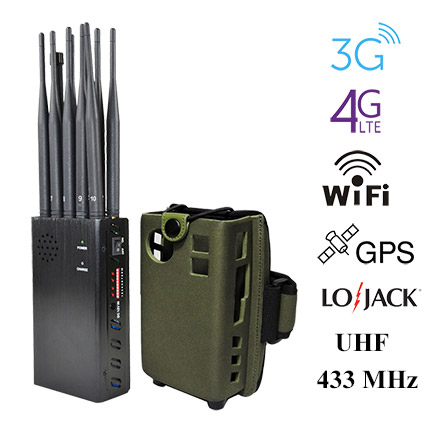If you have never heard of the terms “jamming” and “deception” related to transportation telematics before, you are not alone, because in the United States, both are very rare forms of telematics hacking. However, Guy Buesnel, product manager of Spirent’s communications positioning and navigation business unit, warned that this kind of activity has already occurred in the overseas freight market and may be carried out in the United States. United.
He told the person in charge of the fleet: “GPS jamming is currently very common, and jamming equipment is readily available and very cheap.” “We know that criminals are starting to use gps blocker to commit crimes. For example, in Italy, the gang’s goal is waste transportation. They hijacked He pulled a truck, forced the driver to stop, tied it up, and used a GPS jammer so that the cargo he was carrying could not be tracked.”
In Buesnel’s estimate, one of the more “sinister” effects of GPS interference is that when the jammer approaches the receiver, the receiver will start sending dangerous and misleading information, such as incorrect information. In location and time.
He explained: “If you don’t understand the recipient’s performance under interference and identity theft attacks, trusting the received data will bring you a lot of risk,”
Buesnel said, however, the execution of identity theft is “a bit tricky,” because identity theft is actually “forging” GPS signals.
He explained: “So far, there has been no example of anyone cheating through simulated satellite signals.” “However, we know that identity theft will be a real threat because criminals are already using applications and tampering with GPS coordinates.”
For the fleet, Buesnel believes that identity theft will become a real threat to navigation, positioning and timing systems.

He said: “To deal with it, you need to understand the robustness of today’s equipment and be prepared.” “And only after assessing the risk, you can do so, and then test the equipment according to current and future trends.”
It also includes close monitoring of the construction of the trucking company’s information technology (IT) network.
“In a fleet network, the focus is usually on transportation and delivery, and IT components (servers, routers, firewalls, etc.) often don’t need to be taken seriously,” Buesnel pointed out.
He explained: “But people can access the network and start processing data, for example, this may affect the delivery plan.” “You can easily solve this problem by looking at what is being built and determining how to protect it properly.”
According to the 2015 business risk survey conducted by insurance broker The Graham Company, cyber security is also receiving increasing attention in the American business community.
The company conducted a survey of 300 senior American professionals and found that network security accounts for the highest proportion of “business risks”, with 21% of respondents viewing it as their biggest threat.
The survey also found that almost half of the respondents felt a “significant level” of cyber risk in the following situations:
Hacking incidents resulted in the theft of customer information Unable to use the organization’s network Stealing employee private information Intellectual property theft Unable to access the organization’s website
Ken Ewell, President and Chief Operating Officer of The Graham Company, pointed out: “In a modern business environment where everything is interconnected, the potential threats facing companies are huge.” “This complex risk makes many business leaders feel overwhelmed. And unknowingly expose their companies to risks that threaten their bottom line.”
This is one of the reasons why Spirent’s Buesnel believes that IT security on the “back end” of the road transportation network is “critical” because someone only needs to do the wrong thing once. Malware has been installed on the operator’s computer system.
“At this point, the hacker now has full access to your network, including delivery plans, credit card payments, customer lists, etc.,” Buesnel warned. “If the backbone IT network supporting the fleet is not secure, then all this data can be easily restored.”
He said that it is also a good idea not to trust too many “firewalls” designed to protect computer networks from hackers.
“Companies often buy firewalls, but they don’t always take the time to think,’What do I really mean by buying a firewall?», Buesnel emphasized.
“Is the configuration correct? Did I purchase the correct license for this? Does it really provide the protection I want? He added that this also applies to antivirus software.” When testing Spirent, we looked at When it comes to well-known products, only 44% of attacks can be effectively prevented. Just because you have purchased a firewall does not mean you will be automatically safe. “